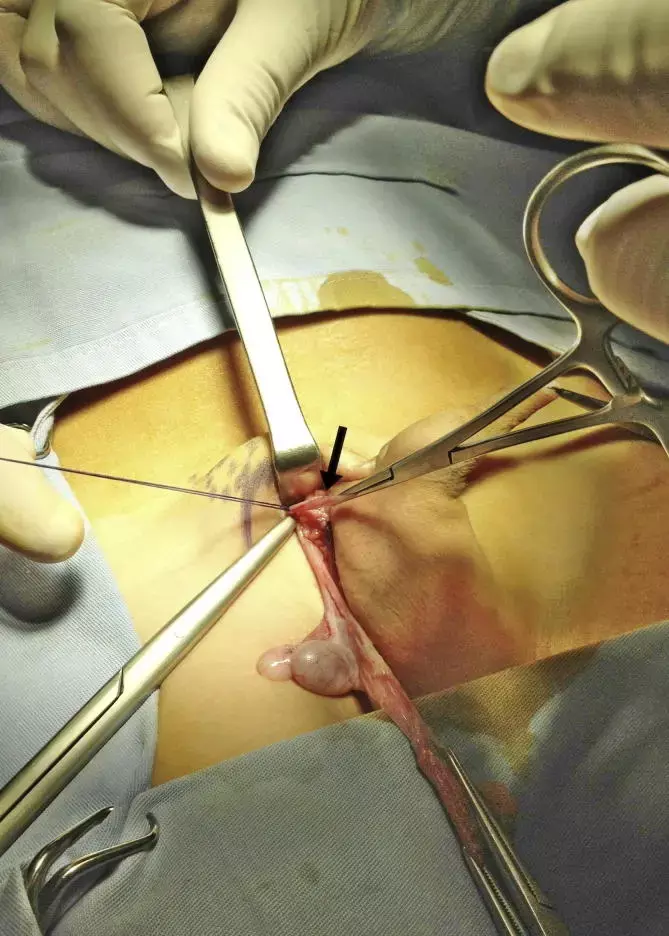- Home
- Medical news & Guidelines
- Anesthesiology
- Cardiology and CTVS
- Critical Care
- Dentistry
- Dermatology
- Diabetes and Endocrinology
- ENT
- Gastroenterology
- Medicine
- Nephrology
- Neurology
- Obstretics-Gynaecology
- Oncology
- Ophthalmology
- Orthopaedics
- Pediatrics-Neonatology
- Psychiatry
- Pulmonology
- Radiology
- Surgery
- Urology
- Laboratory Medicine
- Diet
- Nursing
- Paramedical
- Physiotherapy
- Health news
- Fact Check
- Bone Health Fact Check
- Brain Health Fact Check
- Cancer Related Fact Check
- Child Care Fact Check
- Dental and oral health fact check
- Diabetes and metabolic health fact check
- Diet and Nutrition Fact Check
- Eye and ENT Care Fact Check
- Fitness fact check
- Gut health fact check
- Heart health fact check
- Kidney health fact check
- Medical education fact check
- Men's health fact check
- Respiratory fact check
- Skin and hair care fact check
- Vaccine and Immunization fact check
- Women's health fact check
- AYUSH
- State News
- Andaman and Nicobar Islands
- Andhra Pradesh
- Arunachal Pradesh
- Assam
- Bihar
- Chandigarh
- Chattisgarh
- Dadra and Nagar Haveli
- Daman and Diu
- Delhi
- Goa
- Gujarat
- Haryana
- Himachal Pradesh
- Jammu & Kashmir
- Jharkhand
- Karnataka
- Kerala
- Ladakh
- Lakshadweep
- Madhya Pradesh
- Maharashtra
- Manipur
- Meghalaya
- Mizoram
- Nagaland
- Odisha
- Puducherry
- Punjab
- Rajasthan
- Sikkim
- Tamil Nadu
- Telangana
- Tripura
- Uttar Pradesh
- Uttrakhand
- West Bengal
- Medical Education
- Industry
Scrotal orchidopexy better than Inguinal orchidopexy for undescended testis: JAMA

orchidopexy
Undescended testis prevalence at birth and one year after is 2%–4% and less than 1%, respectively.
Surgical management is the recommended treatment for the congenital cryptorchidism in order to prevent testicular degeneration and improve fertility.
Surgical approach for undescended testicle in infants is debatable between classic inguinal approach or scrotal single incision approach.
So to clarify this, the researchers made a comparative study between classic inguinal approach (inguinal orchidopexy) and scrotal single incision approach (scrotal orchidopexy) in infants with un-descended testis . The trial details were published on the Journal of Surgery in October 2020.
A total of 40 male patients with undescended testis were included in the study.
They were divided into 2 groups, twenty patients in Group A and twenty patients in Group B patients in group A underwent single trans-scrotal orchiopexy surgery and patients in group B underwent inguinal orchidopexy [by two incisions (inguinal and scrotal)]. Researchers assessed primary outcomes such as operative time for the surgery and complications such as wound infection, recurrence and testicular atrophy.
Key findings of the study were:
Researchers found the operation time taken for group A ( single trans-scrotal orchiopexy ) was comparatively less than group B ( inguinal orchidopexy).
The Immediate post-operative complications such as skin site infection, hematoma and edema, were slightly more in group A than the complications in group B.
The researchers also found group A showed no recurrence or testicular atrophy after six months while group B showed 2 cases of recurrence and one case of testicular atrophy.
At three months after surgery, cosmetic results and patients satisfaction of the incision scar was higher in group A than group B
The authors concluded, "performing orchiopexy through single scrotal incision approach is better than the approach of inguinal incision regarding operative time, rabid healing time, parent's satisfaction, fewer long-term complications, less incidence of testicular atrophy and recurrence".
For further information:
http://www.sciencepublishinggroup.com/journal/paperinfo?journalid=253&doi=10.11648/j.js.20200805.13
Medical Dialogues Bureau consists of a team of passionate medical/scientific writers, led by doctors and healthcare researchers. Our team efforts to bring you updated and timely news about the important happenings of the medical and healthcare sector. Our editorial team can be reached at editorial@medicaldialogues.in.
Dr Kamal Kant Kohli-MBBS, DTCD- a chest specialist with more than 30 years of practice and a flair for writing clinical articles, Dr Kamal Kant Kohli joined Medical Dialogues as a Chief Editor of Medical News. Besides writing articles, as an editor, he proofreads and verifies all the medical content published on Medical Dialogues including those coming from journals, studies,medical conferences,guidelines etc. Email: drkohli@medicaldialogues.in. Contact no. 011-43720751


